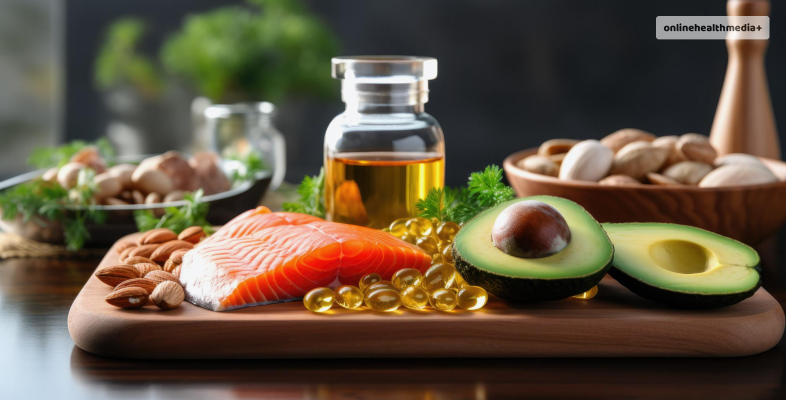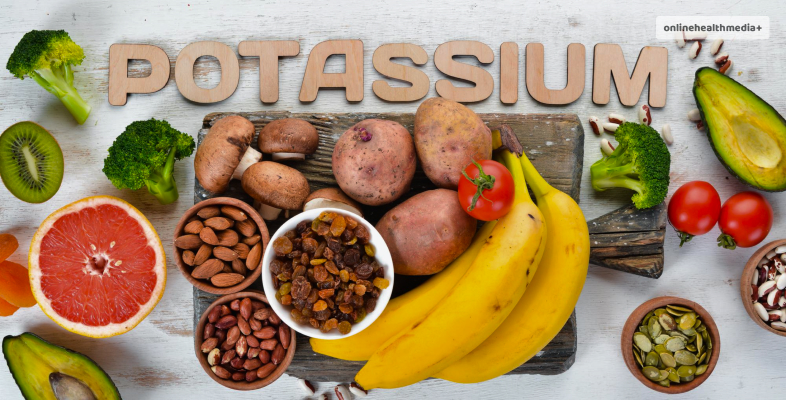Supplements For Mental Health: Add These Natural Food Sources For Great Mental Health!
| Note: The information in this article is not intended to substitute professional medical advice, diagnosis or treatment. |
Supplements for mental health are not always the first line of defense that mental health experts recommend. Supplements are another term for vitamins that can be synthetically made or naturally sourced. They help improve the performance of our cells, maintaining overall health.
Vitamins and minerals are often referred to as conjoined twins; however, they are quite different. Vitamins come from food, whereas minerals are found in water, soil, or rocks. Thus, for someone to get minerals, they would need food that is fortified with them.
However, both team players function synergistically to carry out molecular functions that maintain overall health.
This article will investigate the vital role vitamins play in our lives, especially those who experience mental health issues.
What Is Mental Health?

According to WHO, mental health is a state of mental well-being well-being that allows people to cope with the stresses of life, realize their abilities, and learn well. A fit mental health also allows people to work well and contribute to their community.
Mental health is crucial for overall health and well-being and for individuals to build stable relationships with the world around them. It is a basic human right, but people experience mental health differently.
Varying degrees of distress and difficulty make mental health complex, with people experiencing different clinical and social outcomes. Mental health is “good’ when there are no psychological disabilities or mental disorders.
Impairment in function and risk of self-harm also qualify as poor mental health. The treatment of such mental health disorders includes medications, therapy, and other lifestyle modifications that can improve the individual’s condition. However, it is difficult to see improvement in some cases when medications or other medical treatment options do not work. This is when mental health experts include nutrition therapy in the treatment plan.
Some of the mental health disorders that can benefit from such nutrition therapy are:
- Depression
- Anxiety
- Sleep disorders such as insomnia
The following sections will deal with supplements for mental health that can help you enjoy a healthy mental well-being.
Where Is The Evidence That Supplements For Mental Health Are Useful?

The evidence may not be abundant. However, it exists. The absence of certain vitamins has been known to have significant health implications, some of which can even cause disability.
The current fast-paced world is pushing adults and even teenagers towards mental health issues that had negligible representation in the populace a few decades ago. Who’s to blame is a question that is still being investigated.
Some of the culprits found were hectic professional lives that led to all work and no play for gender-neutral Jacks. They are participating in the race to own it all before a certain age. However, the populace is also aware of the health implications of this lifestyle, so we are now focusing on ways to counteract it.
We’ve found a few options that can help us sustain a healthy lifestyle that supports our participation in the race. Some have found solace in techniques such as meditation, physical activity, or aromatherapy. Some sustain their lifestyle under medical guidance. Both are acceptable and fruitful ways to live in this era when the focus is slowly shifting towards health and well-being.
Vitamins emerge as a consistent winner of the support that people reach out for due to the plethora of articles that are now available. The journey to a healthy life, free of most diseases, must include lifestyle changes that put us out of harm’s way.
Where Do Supplements For Mental Health Fit?

Vitamins are a key piece of healthy eating habits. But you may wonder where mental health fits in. Physical health status is surely what we see more obviously than mental health. However, if you have been following our blog for quite a while, you’d know that there can be physical manifestations of mental health issues as well.
The timing of these may vary, but they may show up sooner or later. So, if you did not catch up already, we also require a good mental health status for our physical health to be good.
This is one of the reasons why supplements for mental health are one of the most searched queries on most search engines.
How do you maintain good mental health? You can do this by making efforts to maintain optimal mental health, which is where our supplements come in. Apart from physical and mental efforts to improve mental health, such as avoiding stress, consumption efforts should also change.
Top 11 Supplements For Mental Health That Are Backed by Science!
Different mental health conditions have a negative effect on your lifestyle. One way to maintain good mental health is through engaging in activities that keep you mentally and physically active. I support obtaining nutrition through natural sources so that there is the least risk of harm.
The following supplements have been proven to have positive effects on the brain:
1. Omega-3 essential fatty acids

As per SAMHSA, Omega-3 can optimize cognitive function and improve mood stability. Research proves that increasing the essential fatty acid content can positively impact mental health, reducing the chances of depression and anxiety. Some examples of food containing omega-3 fatty acids- walnuts, chia seeds, fish, olive oil and seaweed.
2. Vitamin B12
A crucial nutrient for the brain, vitamin B12 is necessary to produce serotonin, which is a chemical that stabilizes the mood. This also helps prevent the loss of neurons, which further improves overall mental health. Some examples of foods that provide a rich source of vitamin B12 are crab, shellfish, eggs, tofu, liver, and cheese.
3. Vitamin B

Vitamin B is an important supplement that can help improve the development of brain cells. This is through its contribution to the production of energy necessary to produce brain cells. Some of the foods that have vitamin B are- leafy greens, salmon, eggs, oysters, chicken, yogurt and legumes.
4. Vitamin D
Vitamin D, the vitamin we can get from sun exposure as well, is important for cognitive performance. This vitamin is important for producing serotonin and new brain cells. Serotonin plays a crucial role in maintaining cognition, mood, and physical processes such as vasoconstriction.
You can get your dose of Vitamin D through- egg yolks, salmon, fortified dairy, tuna, and sardines.
5. Vitamin C

Vitamin CV, the abundant vitamin in citrus fruits, is essential for cognitive performance. It helps promote the maturation of neurons, including the formation of myelin sheath. It is also responsible for protecting neurons and facilitating impulse transmissions. Some of the common food items you can find vitamin C in are- citrus fruits, strawberries, peppers, and broccoli.
6. Vitamin E
Vitamin E is responsible for protecting cells from damage due to oxidative stress, and it acts as an antioxidant for the brain. Some of the sources to obtain vitamin C are- almonds, sunflower seeds, peanuts, pumpkin, spinach, plant-based oils, and red bell pepper.
7. Zinc

This is an important mineral that helps maintain the integrity of the DNA and supports the brain’s direction of cellular activities. Zinc exists amply in natural sources such as pumpkin seeds, lamb meat, garbanzo beans, mushrooms, spinach, yogurt, and cashews.
8. Magnesium
Also known as the calming chemical, this is one of the minerals that help treat depression. It is an important gatekeeper for NMDA receptors that are important for brain development. Some of the sources you can obtain magnesium from are- almonds, cashews, seeds, spinach, and peanuts.
9. Potassium

This mineral is an important electrolyte that helps in acting as a brake for the central nervous system. A decrease in its levels in the body can cause worry, restlessness and anxiety. Thus, maintain good levels of this mineral through coconut water, spinach, pineapple, tomatoes, dried apricots, melon, and avocado.
10. Iron
This supplement is an important part of overall health and well-being, and it is important for maintaining mental well-being. This is an important part of supplements for mental health due to its active role in controlling the exacerbation of mental health symptoms. Some of the sources of iron are- spinach, red meat, legumes, liver and other organ meats, shellfish, and pumpkin seeds.
11. Probiotics

This may be unusual in this list at first, but there is good reason for this to be here on the list. The GI tract has millions of neurons that transmit signals such as those of hunger, or something not feeling ‘right.’ Good bacteria in the GI tract supports mental health. For example, promoting emotional and mood regulation.
Good food sources to promote gut health are fermented vegetables, yogurt, tempeh, kombucha, and kefir.
These food materials should be helpful in promoting mental health and keeping mental health issues at bay.
Conclusion
Supplements for mental health can be referred to as the vitamins and minerals that are naturally present in our food. Relying on synthetic supplements is not a great option unless an individual has dysphagia.
This article lists the top 11 supplements for mental health that you can obtain through natural sources. This is best for minimal harm.
Want to know more about supplements? Let us know in the comments below!



